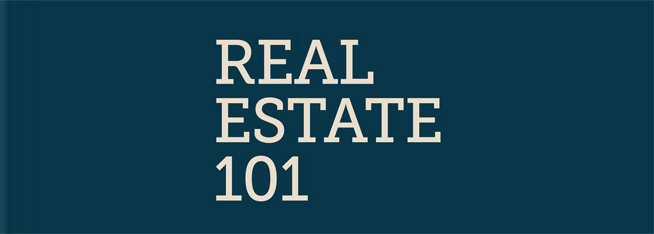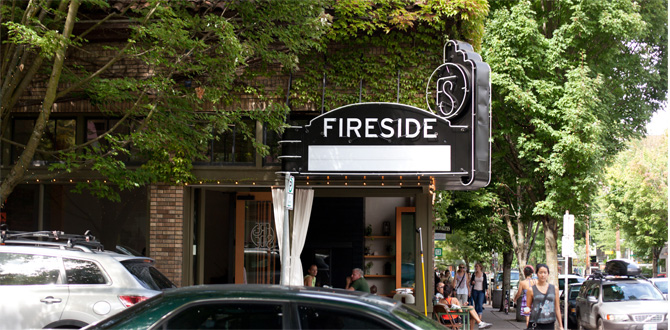I'll cut to the chase: Usually, the answer is no. But there are exceptions. When…

Real Estate 101: What are closing costs,
and how much are they?
 Buying or selling a home does cost money. A question I get frequently is about “closing costs” — surely you’ve heard this term before, but do you know what it means? I’m going to break it down for you.
Buying or selling a home does cost money. A question I get frequently is about “closing costs” — surely you’ve heard this term before, but do you know what it means? I’m going to break it down for you.
Closing costs are the costs associated with buying or selling a home that you pay at closing (or in the final day or two leading up to the closing of your sale). Included in that figure is often pre-paid expenses (like pro-rated property taxes or pre-paid insurance). Costs vary depending on if you’re selling or buying, but I’m going to give you a basic outline of the closing costs you can expect when you buy or sell a home.
How and when do you pay closing costs?
When you’re in a real estate transaction, you’ll be working with an escrow officer. That escrow officer is a neutral third party who handles the transfer of money in the transaction. In the days leading up to your closing, they will prepare a complete itemized statement that shows all the costs, and a complete final figure. Cashier’s checks or wire transfers are the standard ways to pay them, and people usually hand that money in when they visit the escrow office to sign their final documents.
Buyers’ Closing Costs
Closing costs for buyers vary depending on lots of factors, but here’s a simple overview of the charges you can expect on your final closing statement:
Down payment: Not really a closing cost, but it’s due at the same time. This is set beforehand with your lender and in your sales contract.
Loan origination fee: Often the largest closing cost for buyers, this is the fee a lender charges to issue a new mortgage. These depend widely on your loan program, your lender and your purchase price, but I’ve seen them range from $0-thousands.
Other lender fees: The lender will charge you for a few other items, from an appraisal fee, flood certification fee, credit report fees and others. They can also charge you for points, which is an option many lenders give you to pay up front for a lower interest rate.
Title insurance: A title insurance policy on the home is provided by the seller in all Oregon transactions, but often your lender will require you to pay for a supplemental policy in addition to that. This cost is based on the value of the property.
Title and escrow fees: Buyers pay half of the escrow fee, recording fees and transfer taxes, if applicable (Washington County has one, for example).
Pro-rated property taxes and HOA dues: Property taxes are weird in Oregon. The tax year runs from July to June, and bills come out in November. (Seriously. Who thought this system up?) The escrow officer pro-rates the property taxes to make sure they’re paid up and that you only pay for the days you own the property. If there is an HOA, they’ll do the same with those dues.
There can be other fees and charges, but these are generally the big ones. Of course, if you purchase a house with cash, your fees are greatly reduced because you’re not responsible for any of the fees associated with a lender.
In my experience, if you’re buying a home in the $400,000 range, with a conventional loan you can expect your closing costs to run $5,000-$12,000 (which does not include your down payment). Hot tip: If you are working with a lender, ask them to estimate your closing costs while they’re pre-approving you so you can be fully prepared for what’s coming.
Sellers’ Closing Costs
For sellers, closing costs look a little different. For instance, you get the distinct privilege of not only paying your realtor’s fee, but the fee of the realtor representing the buyer! It’s a weird system, but that’s how it works most of the time. On the other hand, you won’t be paying a lender on the selling side. Here’s a general breakdown:
Commissions: These are the biggie for sellers. Most full-service agents charge a 6% listing fee, which is split between them and the cooperating broker (the other agent representing the buyer). This 6% is calculated off the final purchase price of the home.
Title and escrow charges: When you’re selling in Oregon, you will pay for a title insurance policy on behalf of the new buyer. This insures that clear title can be transferred to them. You’ll also be responsible for half of the escrow and recording fees, which are set based on the sales price of the home.
Pro-rated property taxes and HOA dues: There they are again! These will be calculated based on the date of recording. There are certain times of year when a sale will give you a huge payback on your property taxes, and times of year where it’s basically a wash.
Sellers’ costs are a little simpler, aren’t they? A good rule of thumb when calculating your closing costs as a seller is to figure 7.5% of the sales price to cover all your closing costs. If you are making more money than that on the sale, the escrow officer just deducts your costs from your proceeds and refunds you the rest. Ka-ching!
Questions? Please reach out via e-mail at [email protected]. I’d love to help.
